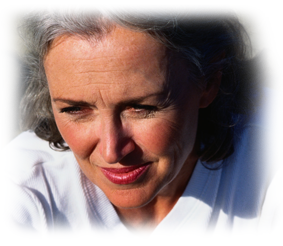Back Pain SmartSite TM | ||||||||||||||||||
Going home after back surgeryWhat to expect at homeRecovery after microdiskectomy (diskectomy) is usually fairly quick. After diskectomy or foraminotomy, you may still feel pain, numbness, or weakness along the path of the nerve that was under pressure. These symptoms should get better after 1 to 2 weeks. However, your nerve pain may take 2 to 3 months to recover. It takes longer to recover from laminectomy and fusion surgery. You will not be able to return to activities as quickly. It takes at least 3 to 4 months after surgery for bones to heal well, and healing may continue to happen for at least a year. If you had spinal fusion, you will probably be off work for 4 to 6 weeks if you are young and healthy. If you are older it may take 4 to 6 months before you can to get back to work. The length of recovery will also depend on how bad your condition was before surgery and also the extent of the operation. ActivityYour doctor may or may not send you for some physical therapy after you leave hospital. Before you leave the hospital, you will learn how to move and do activities in a way that prevents pain and keeps your back in a safe position. These are:
You will also learn certain exercises that help make muscles in your back stronger and keep your back safe and stable. Your doctor and physical therapist can help you decide whether or when you can return to your job. You will need to change how you do some things.
You may be fitted for a back brace or corset to help support your back:
DO NOT bend at the waist. Instead, bend your knees and squat down to pick up something. DO NOT lift or carry anything heavier than 10 pounds (nothing heavier than a gallon of milk). This means you should not lift a laundry basket, grocery bags, or small children until your surgeon says you can. You should also avoid lifting something above your head until your fusion heals. Take only short walks for the first 2 weeks after surgery.
Riding or driving in a car:
Wound careYour bandages (Steri-strips) will fall off within 7 to 10 days. If not, you may remove them yourself after this time. You may feel numbness or pain around your incision, and it may look a little red. Check it every day to see if it:
Keep the incision dry for first 5 to 7 days. When you begin showering again, cover the incision with plastic wrap. DO NOT allow water from the shower to beat down on the incision. The first time you shower, have someone there to help you. DO NOT smoke or use tobacco products after spine surgery. Avoiding tobacco is even more important if you had a fusion or graft. Tobacco interferes with wound healing and bone fusion. Make sure your bathroom is safe. A fall could cause a serious problem and make it harder to heal. You can have handles installed around the bathroom for support and balance. Pain managementYour doctor will give you a prescription for pain medicines. Get it filled when you go home so you have it available. If the pain is becoming worse, take your pain medicine to help before the pain becomes very bad. During the first few weeks of your recovery, think about taking pain medicine about a half an hour before you are going to increase your activity. When to call the doctorCall your doctor or nurse if you have:
Also, call your doctor if you have:
| ||||||||||||||||||
| ||||||||||||||||||
Review Date: 4/3/2018 Reviewed By: C. Benjamin Ma, MD, Professor, Chief, Sports Medicine and Shoulder Service, UCSF Department of Orthopaedic Surgery, San Francisco, CA. Also reviewed by David Zieve, MD, MHA, Medical Director, Brenda Conaway, Editorial Director, and the A.D.A.M. Editorial team. View References:  The information provided herein should not be used during any medical emergency or for the diagnosis or treatment of any medical condition. A licensed medical professional should be consulted for diagnosis and treatment of any and all medical conditions. Links to other sites are provided for information only -- they do not constitute endorsements of those other sites. No warranty of any kind, either expressed or implied, is made as to the accuracy, reliability, timeliness, or correctness of any translations made by a third-party service of the information provided herein into any other language. © 1997- A.D.A.M., a business unit of Ebix, Inc. Any duplication or distribution of the information contained herein is strictly prohibited. | ||||||||||||||||||
A.D.A.M. content is best viewed in IE9 or above, Firefox and Google Chrome browser. | ||||||||||||||||||











